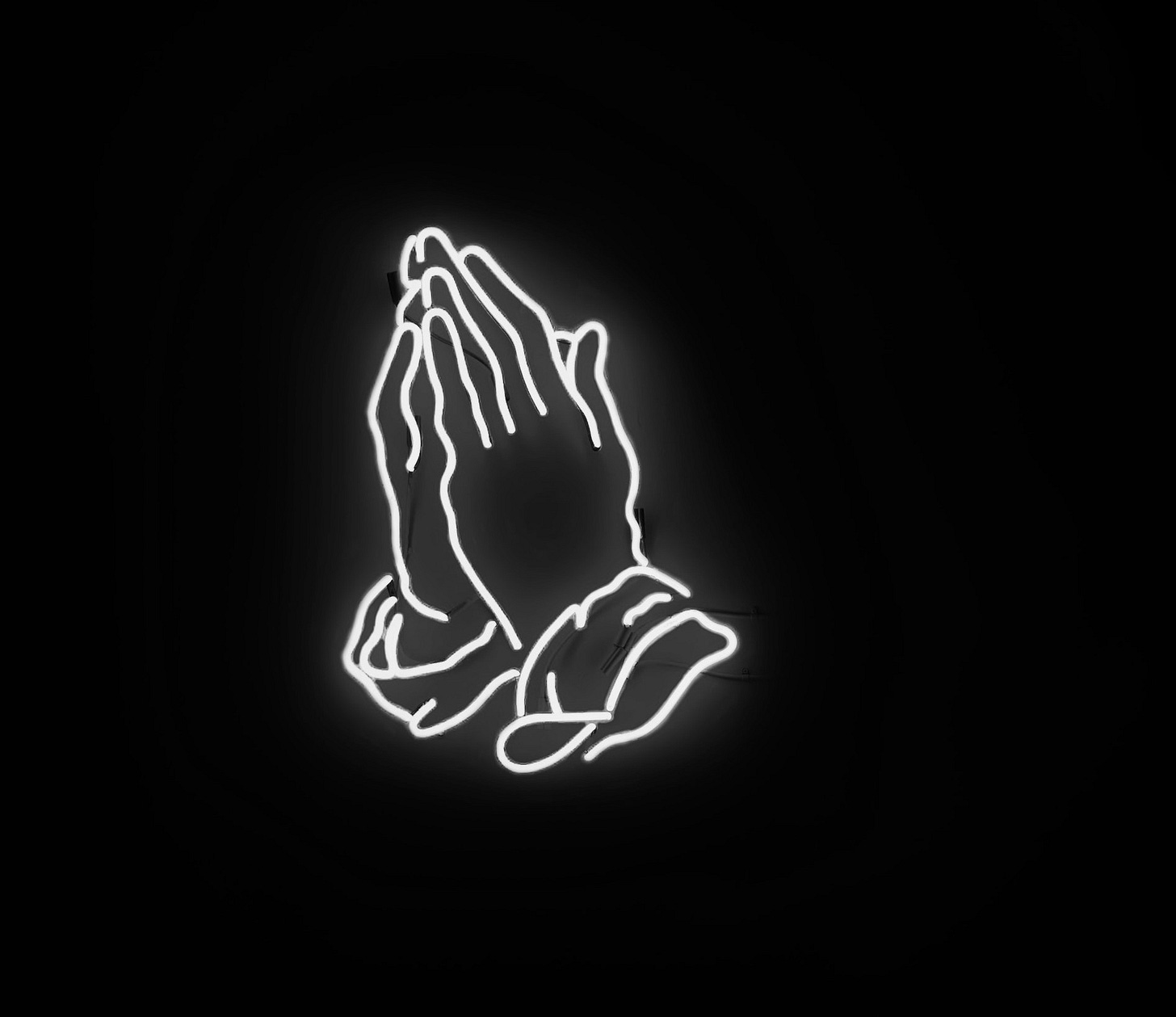My senior year of undergrad, my theology of prayer shifted dramatically in response to my mom’s battle with stage III cancer. When I shared my mom’s diagnosis with friends and my faith community, a flurry of frantic “praying for you” messages began flooding in.
I didn’t know how to acknowledge other people’s prayers because I did not believe they would come true. While I appreciated the emotional and spiritual support, these petitionary prayers felt pointed toward an end goal that I feared was impossible—a miraculous healing.
A theology of healing was integral to my religious tradition of origin, southern American Pentecostal Christianity. Because Jesus’ healing miracles are described frequently in the gospels, many Christians believe that God’s healing power is accessible to Christians today.
Pentecostals and some evangelicals take this theology of healing power a step further by practicing prayer with an almost Olympic dedication. They believe that the longer and more confidently you pray, the more likely a miracle is to occur. The focus here is on free will and the human capacity to change the circumstances of our lives and maybe even God’s will.
Of course, there are many other forms of Christian prayer and many other Christian reasons to pray, like praising or thanking God. But even these motivations sometimes confuse or frustrate me theologically. A God who needs constant human validation seems narcissistic. And if we thank God for the good things that happen in life, must we also attribute tragedies to God’s doing?
Desperate for my mom’s life to be spared, I prayed with religious fervor, even though I had no confidence that things would turn out okay. This simultaneous resignation to reality and the hope for what could be helped me see the value in turning to Love as a recognition of my human limitations.
This season of despair and dread highlighted my need for divine support—whether that support would turn out to be a healing or simply a deeper awareness of a suffering God’s presence in the midst of my own suffering.
Likewise, my perspective on the benefits of praying for others changed as well. As I sat in hospital waiting rooms during her surgeries and chemo treatments, I felt the prayers and well wishes of our friends, family, and community blanketing me in a tangible warmth.
While I didn’t share their exuberant certainty that my mom would recover, the care and attention of our community’s prayers sustained me. From this experience, I began to see prayer as an energy exchange that cycles from humanity to the divine and back again as well as from human to human.
This understanding of prayer neither attributes the power of healing to human prayers nor the weight of every misfortune on God’s metaphorical shoulders. Instead, prayer as energetic exchange recognizes the agency of humans to impact each other and to participate in the co-creation of goodness in the world while thanking God for the foundational blessing of being alive.
Communicating with Love and sharing love with others is also not limited to formal prayer. If someone you care for needs a little extra support, listening to them or simply sitting with them may be more beneficial than an obligatory “praying for you.”
_
Author’s note: This post was written on the unceded and traditional territories of the xʷməθkʷəy̓əm (Musqueam), Sḵwx̱wú7mesh (Squamish), and səlilwətaɬ (Tsleil-Waututh) First Nations.
If this post resonated with you, consider hitting the like button (the heart) below or sharing this post with a friend.




